This article was co-authored by Noel Hunter, Psy.D. Dr. Noel Hunter is a Clinical Psychologist based in New York City. She is the director and founder of MindClear Integrative Psychotherapy. She specializes in using a trauma-informed, humanistic approach for treating and advocating for people diagnosed with mental disorders. Dr. Hunter holds a BA in Psychology from the University of South Florida, an MA in Psychology from New York University, and a doctorate in Psychology (Psy.D) from Long Island University. She has been featured in National Geographic, BBC News, CNN, TalkSpace, and Parents magazine. She is also the author of the book Trauma and Madness in Mental Health Services.
There are 14 references cited in this article, which can be found at the bottom of the page.
This article has been viewed 11,947 times.
A brief psychotic disorder (also called reactive psychosis) most often occurs after a stressful event, and can last from 1-30 days.[1] Symptoms include delusions, hallucinations, disorganized behavior, and strange speech.[2] While most brief psychotic episodes resolve on their own, treatment can be helpful. Always work with a trained psychological professional, such as a psychologist or licensed therapist.
Steps
Addressing Immediate Risks
-
1Address suicide risk. If a person is at risk for hurting themselves or someone else, it's imperative to address this first. People experiencing psychosis are at a high risk for suicide. If the person has a history of suicidal thoughts or a past suicide attempt, the risk is even higher. It's also important to ask if there's a family history of suicide.[3]
- If someone is at a high risk or appears threatening in any way, seek immediate attention. Take the person to the emergency department or call emergency services. Call the person's therapist immediately.
- For more information, check out How to Help Someone Who Is Thinking About Committing Suicide.
-
2Treat risks such as violence. Along with a higher risk of suicide, the risk of violence is higher when a person experiences psychosis.[4] If the person hurts or tries to hurt themselves or others, seek medical and psychological attention immediately.
- You can take the person to the emergency department for immediate attention. Call the person's therapist right away.
- Clear the home of any potentially hazardous items such as guns, knives, or other weapons.
Advertisement -
3Seek hospitalization. A brief psychotic episode can lead to strange behaviors and can endanger the lives of the person or those around the person. Sometimes the safest thing to do is seek hospitalization. You may take the individual to the emergency department or to a hospital that specializes in psychological treatment.[5]
- Most often, hospitalization is short-term. The goal of hospitalization is to keep the person safe and stabilize behaviors.
-
4Obtain a crisis evaluation. A crisis evaluation can be performed at a mental hospital or at the emergency department. A crisis evaluation may determine a person's placement into a psychiatric hospital and guide the course of treatment. It can also assess the person's needs and risks and address them accordingly.[6]
- Crisis evaluations are often performed by social workers or other trained mental health professionals. They are useful in getting quick access to necessary care.
Helping Someone with Acute Psychosis
-
1Calm the person down. If the hallucinations or delusions make the person anxious or hyper, do your best to be soothing and calming. Use a calm voice when talking to the person and don't speak too quickly. If the person is agitated or restless, encourage him or her to take a walk or get some exercise. Acknowledge the feelings he or she is experiencing and offer some suggestions to decrease agitation.
- Say, “I can see this is making you upset. Would you like to take a walk with me?”
-
2Redirect attention. Use gentle redirection to move someone into a different mental space. Making demands or insisting that the experience is not real won't help the person to calm down or re-focus. If the person is going on and on about the delusion, gently bring the attention to something else.[7]
- You may want to discuss a recent sports game, put on some music, or talk about something silly or funny.
-
3Don't react to hallucinations/delusions. It's important not to play into the hallucinations or delusions. This enables the psychotic disorder. If the person seems to come back to a certain level of coherence, be gentle and honest. Don't talk about how the person is “acting crazy” or make any comments that imply that mental illness is bad or something shameful.[8]
- While it may be easier to say, “That isn't real and you're making it up,” say, “You're having some difficulty determining what is true and valid. No matter what, I'm here for you.”
-
4Be supportive. Many people with psychosis may isolate or lose contact with friends and family. Stay in the person's life through the psychotic episode. Offer help and support and regular contact. It's important for the individual to receive support from others as a means to stay safe and connected.[9]
- Offer to bring food over, drive to mental health appointments, or visit the person in the hospital.
Seeking Professional Help
-
1See a therapist. A therapist can help the person cope with the stress that triggered the episode.[10] Therapy can help the person learn coping skills to help get through the difficult situation, such as using relaxation or deep breathing. A therapist may choose to work with the individual, or may also choose to work with the family. Cognitive behavior therapy and stress reduction skills can be helpful parts of therapy.
- A therapist can also provide recommendations for further treatment, such as obtaining medication or engaging in family therapy.
-
2Talk about medication. Medication can help stabilize symptoms. Talk to a psychiatrist about obtaining medication to help decrease or stop the psychotic symptoms.[11] The person may be prescribed antipsychotic medication, which can decrease the presence of delusions, hallucinations, and strange behavior.
- If the individual is being treated at a psychiatric hospital, medications may be prescribed by the attending psychiatrist as part of treatment.
- For more information, check out How to Find a Psychiatrist.
-
3Address co-occurring psychological disorders. Brief psychotic disorder can be associated with certain personality disorders such as borderline personality disorder[12] and paranoid personality disorder.[13] If treating someone with a diagnosis of one of these disorders, it's important to treat the disorder as part of regular psychological treatment and not just the psychosis.
- Treatment can include learning ways to handle stress and respond to it in a healthy way. This can include meditation, qi gong, or yoga. It's important to stay away from unhealthy coping mechanisms, such as drinking excessive alcohol, zoning out with video games or watching tv, or overeating.[14]
Assessing the Impact of Other Factors
-
1Minimize risk factors. When treating brief psychotic disorder, it's important to minimize any risk factors. Some common risk factors include acute or chronic distress, social isolation, minimal social support, and a lack of healthy coping skills. When treating a brief psychotic disorder, it's important to minimize any exposure to distress and increase social support and coping skills.[15]
- Make sure the person is supported by family and friends. Coping skills can include doing deep breathing or going on a walk.
- If the person is exposed to an abusive situation or to a traumatic environment, efforts should be placed into removing the person from these dangerous situations.
-
2Assess for the presence of substances. It's important to rule out the presence of substances when diagnosing and treating brief psychotic disorder in order to treat it most effectively.[16] Ask the person if he or she has taken any drugs, alcohol, or other substances that may disrupt mood or behavior. Ask about any prescription drug use or recreational substance use. If substances are used, then it's important to treat the effects of the substances and any damage to the body. Hospitalization may be necessary. Treatment should encourage the person to discontinue use of any substances that cause or contribute to psychosis.
- In particular, extended abuse of cocaine or methamphetamine or use of psychedelics can trigger brief psychotic symptoms. Withdrawal from ethanol can also trigger symptoms.[17]
-
3Look into medical causes. When discussing treatment, it's important for the provider to ask specific questions. For example, medical causes and medical diagnoses must be ruled out. This includes traumatic brain injury (TBI), which can present with similar symptoms as a brief psychotic disorder. [18]
- If you're with someone exhibiting psychotic symptoms, ask if there are any recent injuries that could be linked to the behavior.
- To provide proper treatment, it's important to make sure there is no recent history of TBI or other medical factors that could present as a brief psychotic disorder.
-
4Rule out other enduring diagnoses. If the psychosis lasts more than 30 days, a diagnosis of schizophrenia or a mood disorder may be considered. Both depression and bipolar disorder can include psychotic features. A thorough exploration of the person's mental health history alongside a detailed family mental health history can provide valuable information as to the nature of the psychosis.[19]
- Treatment of schizophrenia, depression, and bipolar disorder vary greatly. When faced with differential diagnoses, it's important to consider other factors as these can affect what kind of interventions are used, particularly around medication.
Expert Q&A
-
QuestionHow can you prevent a psychotic episode?
 Noel Hunter, Psy.DDr. Noel Hunter is a Clinical Psychologist based in New York City. She is the director and founder of MindClear Integrative Psychotherapy. She specializes in using a trauma-informed, humanistic approach for treating and advocating for people diagnosed with mental disorders. Dr. Hunter holds a BA in Psychology from the University of South Florida, an MA in Psychology from New York University, and a doctorate in Psychology (Psy.D) from Long Island University. She has been featured in National Geographic, BBC News, CNN, TalkSpace, and Parents magazine. She is also the author of the book Trauma and Madness in Mental Health Services.
Noel Hunter, Psy.DDr. Noel Hunter is a Clinical Psychologist based in New York City. She is the director and founder of MindClear Integrative Psychotherapy. She specializes in using a trauma-informed, humanistic approach for treating and advocating for people diagnosed with mental disorders. Dr. Hunter holds a BA in Psychology from the University of South Florida, an MA in Psychology from New York University, and a doctorate in Psychology (Psy.D) from Long Island University. She has been featured in National Geographic, BBC News, CNN, TalkSpace, and Parents magazine. She is also the author of the book Trauma and Madness in Mental Health Services.
Clinical Psychologist It's important to figure out what one's triggers are. Sometimes those triggers can be malnutrition, but oftentimes, it's an overload of stress, or it's being in particular situations where a person just feels like they have no other way out, and so they might start going into a particular kind of state. More than anything, the thing that can be helpful is making sure that you're in places and around people that feel safe. I think if a person doesn't feel safe, that's bound to start triggering some upsetting thoughts and that might trigger a psychotic state.
It's important to figure out what one's triggers are. Sometimes those triggers can be malnutrition, but oftentimes, it's an overload of stress, or it's being in particular situations where a person just feels like they have no other way out, and so they might start going into a particular kind of state. More than anything, the thing that can be helpful is making sure that you're in places and around people that feel safe. I think if a person doesn't feel safe, that's bound to start triggering some upsetting thoughts and that might trigger a psychotic state. -
QuestionHow should you interact with someone who is experiencing a psychotic episode?
 Noel Hunter, Psy.DDr. Noel Hunter is a Clinical Psychologist based in New York City. She is the director and founder of MindClear Integrative Psychotherapy. She specializes in using a trauma-informed, humanistic approach for treating and advocating for people diagnosed with mental disorders. Dr. Hunter holds a BA in Psychology from the University of South Florida, an MA in Psychology from New York University, and a doctorate in Psychology (Psy.D) from Long Island University. She has been featured in National Geographic, BBC News, CNN, TalkSpace, and Parents magazine. She is also the author of the book Trauma and Madness in Mental Health Services.
Noel Hunter, Psy.DDr. Noel Hunter is a Clinical Psychologist based in New York City. She is the director and founder of MindClear Integrative Psychotherapy. She specializes in using a trauma-informed, humanistic approach for treating and advocating for people diagnosed with mental disorders. Dr. Hunter holds a BA in Psychology from the University of South Florida, an MA in Psychology from New York University, and a doctorate in Psychology (Psy.D) from Long Island University. She has been featured in National Geographic, BBC News, CNN, TalkSpace, and Parents magazine. She is also the author of the book Trauma and Madness in Mental Health Services.
Clinical Psychologist The most important thing is to not argue with them. Don't try to tell them that whatever it is that they are saying or believing is untrue. It probably is just going to make the person angry, and it's going to make them feel unsafe. Instead, you want to work with them within their belief system and get them the support they need.
The most important thing is to not argue with them. Don't try to tell them that whatever it is that they are saying or believing is untrue. It probably is just going to make the person angry, and it's going to make them feel unsafe. Instead, you want to work with them within their belief system and get them the support they need.
References
- ↑ http://psychcentral.com/disorders/brief-psychotic-disorder-symptoms/
- ↑ https://www.nlm.nih.gov/medlineplus/ency/article/001529.htm
- ↑ https://www.mayoclinic.org/diseases-conditions/suicide/in-depth/suicide/art-20044707
- ↑ http://www.cdc.gov/violenceprevention/suicide/riskprotectivefactors.html
- ↑ https://www.webmd.com/schizophrenia/guide/mental-health-brief-psychotic-disorder
- ↑ https://medlineplus.gov/ency/article/001529.htm
- ↑ http://www.psychguides.com/guides/how-to-find-help-treating-psychosis/
- ↑ http://www.psychguides.com/guides/how-to-find-help-treating-psychosis/
- ↑ Noel Hunter, Psy.D. Clinical Psychologist. Expert Interview. 18 December 2020.
- ↑ https://www.nlm.nih.gov/medlineplus/ency/article/001529.htm
- ↑ https://www.nlm.nih.gov/medlineplus/ency/article/001529.htm
- ↑ https://www.mayoclinic.org/diseases-conditions/borderline-personality-disorder/symptoms-causes/syc-20370237
- ↑ https://www.psychologytoday.com/us/conditions/paranoid-personality-disorder
- ↑ http://www.helpguide.org/articles/stress/stress-management.htm
- ↑ Noel Hunter, Psy.D. Clinical Psychologist. Expert Interview. 18 December 2020.
- ↑ http://psychcentral.com/disorders/brief-psychotic-disorder-symptoms/
- ↑ Kuzenko, N. ,Sareen, J., Beesdo-Baum, K., Perkonigg, A., Höfler,M., Simm, J., Lieb,R., & Wittchen, H.U. (2011). Associations Between Cocaine, Amphetamine or Psychedelic Use and Psychotic Symptoms in a Community Sample. Acta Psychiatrica Scandinavica. (123). 6. 466- 474. DOI: 10.1111/j.1600-0447.2010.01633.x.
- ↑ Umbrasas, K. (2010). Keeping the diagnostic lens polished. Psychological reactions to stress. Annals of American Psychotherapy. (13).2. 68-69. Retrieved February 19, 2014, from: www.americanpsychotherapy.com
- ↑ https://www.uptodate.com/contents/brief-psychotic-disorder
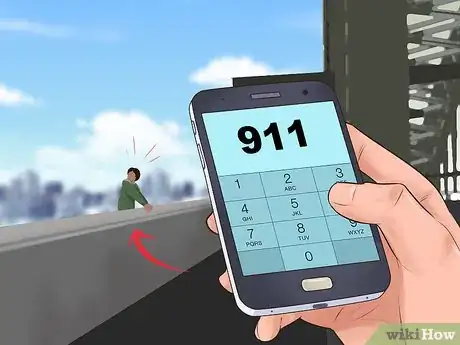
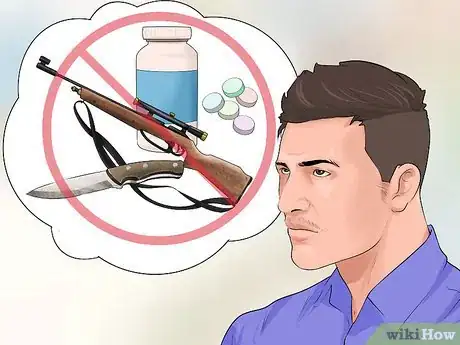
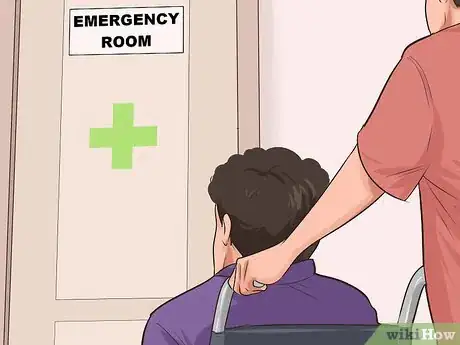
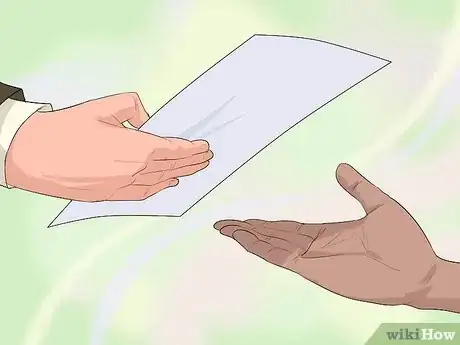


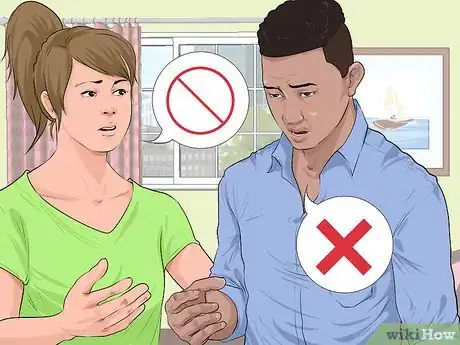
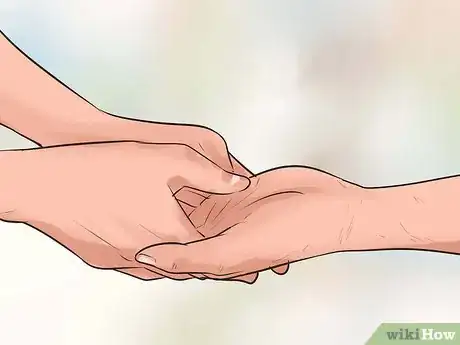


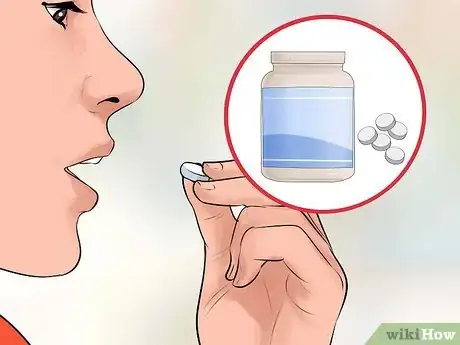


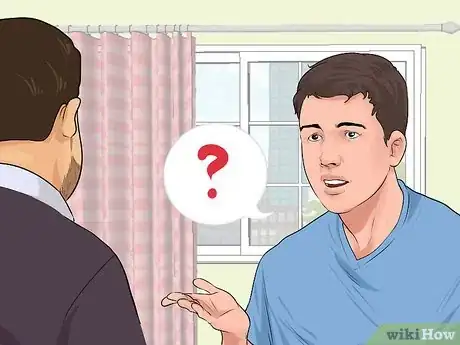
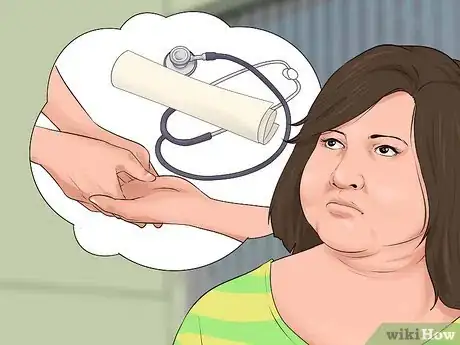
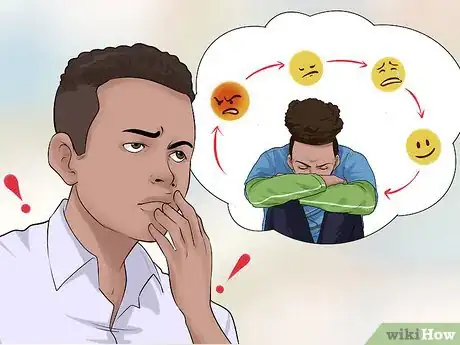

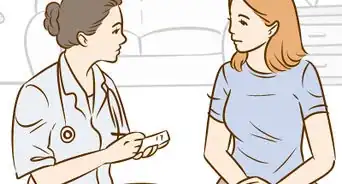
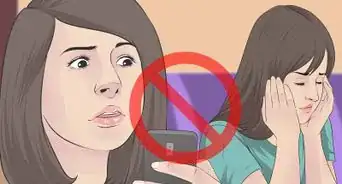



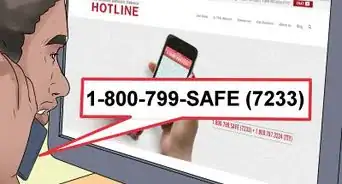
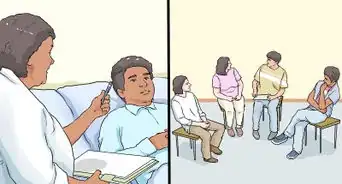













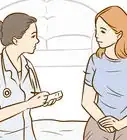





































Medical Disclaimer
The content of this article is not intended to be a substitute for professional medical advice, examination, diagnosis, or treatment. You should always contact your doctor or other qualified healthcare professional before starting, changing, or stopping any kind of health treatment.
Read More...